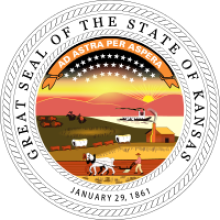Kansas Legislature Introduces Bill to Limit Internet Investment
Get updates to this story here.
With Senate Bill No. 304 [pdf], the Kansas Legislature will consider a bill to revoke local authority to build networks. If passed, this bill would create some of the most draconian limits on building networks we have seen in any state.
The language in this bill prohibits not only networks that directly offer services but even public-private partnerships and open access approaches. This is the kind of language one would expect to see if the goal is to protect politically powerful cable and telephone company monopolies rather than just limiting local authority to deliver services.
The bill states that the goal is to
encourage the development and widespread use of technological advances in providing video, telecommunications and broadband services at competitive rates; and ensure that video, telecommunications and broadband services are each provided within a consistent, comprehensive and nondiscriminatory federal, state and local government framework.Yet the bill does nothing but discourage investment, with no explanation of how prohibiting some approaches will lead to more investment or better services. It does not enable any new business models, rather it outlaws one possible source of competition for existing providers. The bill contains what will appear to the untrained eye to be an exemption for unserved areas. However, the language is hollow and will have no effect in protecting those who have no access from the impact of this bill. The first problem is the definition of unserved. A proper definition of unserved would involve whether the identified area has access to a connection meeting the FCC's minimum broadband definition delivered by DSL, cable, fiber-optic, fixed wireless or the like. These technologies are all capable of delivering such access. However the bill also includes mobile wireless and, incredibly, satellite access. As we have noted on many occasions, the technical limits of satellite technology render it unfit to be called broadband, even if it can deliver a specific amount of Mbps. Satellite just does not allow the rapid two-way transmitting of information common to modern Internet applications.


